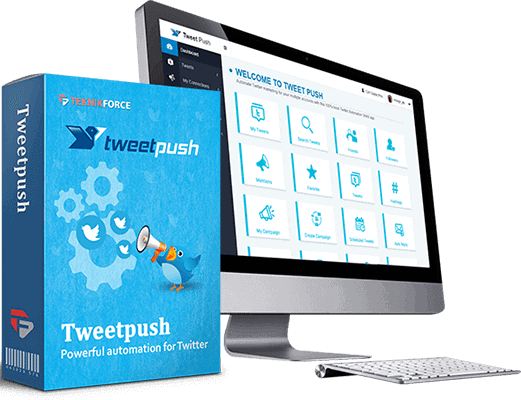
Disclosure: Some links in this article are affiliate links and I may receive payment should you click on a link and purchase something. This is at no additional cost to you. I am not an employee of any company mentioned and all opinions are mine. Thanks.
- Certification vs. Skill-Building: What's Your End Goal?
- 8 of the Best Online Courses for Learning Python.
- 1. Coursera.
- 2. edX
- 3. Udacity
- 5. Specialized Python Coding Platforms not Associated with Universities.
- 2. Codeacademy.
- 3. Pluralsight.
- 4. Learning Python on Udemy.
- Key Features of Python that Make it a Preferred Language.
- Other Python Resources.
- Making a final Decision.
Certification vs. Skill-Building: What’s Your End Goal?
You may be in two minds if you are contemplating learning Python through online courses. One of the critical decisions you’ll need to nail down is whether to focus on obtaining a certification or concentrate solely on skill-building. Depending on your end goals, both paths have their unique advantages and potential drawbacks.
let’s start with the Pros and Cons of Certification.
- Professional Credibility: Certifications can enhance your resume by providing formal recognition of your skills. This is particularly beneficial if you’re looking to advance your career or change fields.
- Structured Learning Path: Certification courses often offer a comprehensive and structured curriculum, ensuring a thorough understanding of the language from basics to advanced concepts.
- Verification of Skills: A certificate acts as a validation of your knowledge and skills, which can be reassuring to employers or clients.
Cons:
- Cost and Time: Certification programs can be expensive and time-consuming. They often require a significant commitment in terms of both money and time.
- Potentially Outdated Material: The technology field evolves rapidly, and some certification programs may not update their content frequently, leading to a gap between current industry practices and what is taught.
- Focus on Theory Over Practice: Some certification courses may focus more on theoretical knowledge, with less emphasis on practical, real-world programming skills.
Skill-Building: The Practical Path to Expertise.
Pros.
- Hands-On Experience: Skill-building often involves practical, hands-on learning, which is crucial for programming. This approach helps in understanding real-world applications of Python.
- Flexibility and Customization: You can tailor your learning to specific areas of interest or requirements, such as data analysis, web development, or machine learning with Python.
- Cost-Effective: Many resources for skill-building, like online tutorials, community forums, and open-source projects, are available for free or at a lower cost than certification programs.
Cons:
- Lack of Formal Recognition: Without a certification, it may be more challenging to prove your skills to potential employers, especially if you are new to the field.
- Self-Discipline Required: Skill-building routes require a higher level of self-motivation and discipline, as they often lack the structured framework of a certification course.
- Choosing between the Abundance of Resources: The vast amount of available learning materials can be overwhelming, making it difficult to identify where to start or which resources are the most beneficial.
Key Criteria for Selecting a High-Quality Online Python Course.
It is a highly sought-after skill in many industries, learning it can open up new career opportunities or help advance your current career.
To ensure that you select a high-quality course that meets your needs, consider the following key criteria:
- Curriculum Relevance and Comprehensiveness
- Flexibility and Accessibility
- Instructor Expertise and Background
- Learning Format and Resources
- Peer and Community Reviews
- Accreditations.
8 of the Best Online Courses for Learning Python.
In response to Python’s rising demand, there has been a plethora of online courses created, enough to confuse or overwhelm anyone.
These courses range from beginner to advanced levels, hosted on various platforms including university-led MOOCs, specialized coding platforms, and video tutorial sites.
However you must remember there are two downsides to overcome in any online course:
- Lack of Personal Interaction: Online courses typically lack the face-to-face interaction you get in a traditional classroom setting. This can affect the learning experience for those who prefer direct contact with instructors and peers.
- Self-Motivation and Discipline Required: Learning online requires a high degree of self-motivation and discipline. Without the structured environment of a physical classroom, some students may struggle to keep up with the course material.
let’s start with the top 3 university led online course (MOOC) Providers: These courses often include a mix of video lectures, written materials, and assignments, with some offering certifications upon completion
1. Coursera.
Coursera Inc. is a U.S.-based massive open online course provider founded in 2012 by Stanford University computer science professors Andrew Ng and Daphne Koller. Coursera works with universities and other organizations to offer online courses, certifications, and degrees in a variety of subjects.
Wikipedia.
Of the over 7,000 courses Coursera offers, 12 are Python courses and of those 10 are beginner courses which take between 1-3 months to complete. As well they have short courses for generating Python coding with the help of AI.
Costs of Coursera.
Essentially Coursera is a subscription based model costing $59.00 a month or a yearly cost of $399. Alternatively you can subscribe to a single course from $49-$79 per month.
Once you are enrolled, you have a trial period of 7 day’s, after that you cannot get a refund, unless it is stated otherwise.
2. edX
edX and Coursera crossover in their course offerings. Both have extensive relationships with universities, not only in the USA, but across the world. Some python courses offered by Coursera are also available from edX.
Python for Everybody taught by Michigan university, is listed by both Coursera and edX.
Possibly, edX has more relationships with overseas universities than Coursera has enabling it to offer courses in places where they would not otherwise be available.
Costs.
You can register for free with edX, and pay for their courses on enrollment. The basic Python for everybody course from Michigan University will cost approx $59.00 at edX, the same as the monthly cost of a Coursera Plus subscription.
An introduction to Python Programming from Georgia Tech on edX will cost approx $680.00.
3. Udacity
Udacity began when Stanford instructors Sebastian Thrun and Peter Norvig had a “revolutionary” idea to offer their “Introduction to Artificial Intelligence” course online—to anyone, for free.
160,000 students from 190 countries took up the offer, and surprise, surprise the top 400 students weren’t from Stanford.
- Udacity is well-regarded for its range of tech-related courses, including Python programming. They are known for their Nanodegree programs, which are designed in collaboration with industry leaders.
- These courses often focus on practical skills and real-world applications, making them a good option for those looking to gain hands-on experience.
Typically Udacity courses can be more expensive than other online learning platforms.
For example their 4 mth. course, Introduction to Python will set you back $846 paid upfront or $249 p/mth.
5. Specialized Python Coding Platforms not Associated with Universities.
1. Educative
Educative is known for its unique approach to teaching coding and programming. The platform offers interactive, text-based courses, which are a departure from the video-based learning found on many other online education platforms like Udemy.
- Educative provides structured learning paths for different programming languages and disciplines, including Python. This can be helpful for learners who prefer a guided learning journey.
- In terms of cost, Educative is often seen as more affordable compared to some other platforms, offering both subscription models and individual course purchases.
Educative offers interactive coding environments within the browser, allowing learners to practice as they read. They are particularly known for their focus on coding and software development, with a strong emphasis on data structures, algorithms, and system design.
Costs:
You can get started with Educative’s Beginners Python Pack for $5.00 a month.
2. Codeacademy.
Codecademy’s free Python courses are a great starting point for beginners. They offer a solid introduction to the language and programming fundamentals.
However, if you’re looking for more in-depth knowledge, hands-on projects, or certification, you will need to consider their paid options, or explore other learning platforms.
Costs of Codeacademy.
They have two paid options. Basic and Pro. basic is $11.99 p/mth and Pro is $15.99 p/mth if paid annually. They also offer professional certifications. To qualify for these you will need to sit and pass an exam.
The paid version will offer more in terms of practical projects and portfolio-building opportunities. You can see more on Codeacademy here.
3. Pluralsight.
Pluralsight is generally regarded as a good platform for learning Python, especially for those who prefer video-based learning. It offers a range of Python courses covering various levels of expertise, from beginners to advanced programmers.
The courses are typically created by industry professionals and provide a mix of theoretical and practical knowledge.
Unlike Educative which is based on text based content with interactive coding environments, Pluralsight mainly use video lectures.
For those who prefer a wide variety of video courses at different skill levels, Pluralsight maybe ideal for you.
Costs.
The basic plan is $19.00 a month and the Premium Plan is $29.00 a month
The Premium plan allows you to take certification exam prep for industry-leading certifications. See more about Pluralsight here.
4. Learning Python on Udemy.
Everyone’s favorite. Want to learn something go to Udemy.
Udemy offers a vast range of Python courses for all skill levels, from beginner to advanced. The courses, like all Udemy courses are created by individual instructors.
Generally, all Udemy courses follow the same format. ie They are primarily video-based with some courses offering quizzes and exercises.
Costs.
All Udemy courses are Pay-per-course model. Prices vary greatly, and frequent discounts are offered. One downside is the costs are usually based per module.
You can see more on Udemy here.
5. Eduerka.
Eduerka is becoming popular due to the high quality and depth of their training.
Their classes are live and you will have the opportunity for working on real-time projects. There are no specific prerequisites for signing up Edureka’s online Python Course.
Although a basic understanding of Computer Programming terminologies is beneficial if you’re a beginner.
Even so, Edureka provides absolute beginner-friendly modules to learn in its Python Classes, even if you have completely zero knowledge of the language model.
Costs:
Normally the course costs $349.00. You will also retain access to the learning materials and have free access to course updates, as well as receiving an industry recognized certificate on successful completion of the course.
You can see more on Eduerka’s Python course Here
Key Features of Python that Make it a Preferred Language.
Python is one of the most loved programming languages by developers, data scientists, software engineers, and even hackers because of its versatility, flexibility, and object-oriented features.
- Simplicity and Readability: Python’s syntax is clear and intuitive, making it an excellent language for beginners.
- Extensive Libraries and Frameworks: Python offers a vast collection of standard libraries and frameworks that simplify complex tasks in data analysis, machine learning, and web development.
- Flexibility and Versatility: Python’s adaptability allows it to be used in various programming paradigms, including procedural, object-oriented, and functional programming.
- Strong Community Support: A robust and active community provides extensive resources, guides, and third-party tools, enhancing Python’s capabilities and ease of learning.
- Platform Independence: Python is cross-platform, meaning it can run on various operating systems like Windows, macOS, and Linux without requiring code modifications.
- Python is also required for other learning programs although it is not taught as a stand alone course.
Other Python Resources.
- Community-Driven and Open Source Learning Resources: Platforms like GitHub or public forums offer user-generated content, including tutorials, projects, and code snippets. These resources are often free and maintained by the Python community.
- Video Tutorial Platforms: YouTube channels and other video platforms host a plethora of Python tutorials. These range from complete beginner courses to advanced topic-specific videos.
- Interactive Learning Platforms: Websites like Khan Academy and DataCamp offer interactive Python courses where learners can write and execute code within the browser, receiving immediate feedback.
Making a final Decision.
- Curriculum Structure and Depth:
- University MOOCs: Often follow a structured curriculum similar to what is offered in university courses. They tend to provide a comprehensive understanding of Python, often within a broader context of computer science. MOOCs might include more theoretical aspects and foundational concepts.
- Specialized Python Platforms: Typically focus on practical aspects of Python programming. Courses are usually more modular, allowing learners to pick specific topics or skills they want to master. They might offer a more hands-on approach to learning Python, with an emphasis on real-world applications.
- Certification and Accreditation:
- University MOOCs: Often offer certificates upon completion, which may carry more weight academically or in certain professional settings due to the association with recognized universities.
- Specialized Python Platforms: Also offer certificates, but they are usually more focused on demonstrating practical skills rather than academic achievement. The recognition of these certificates can vary in the professional world.
- Learning Format:
- University MOOCs: Typically include a mix of video lectures, readings, and assignments. Some may offer interactive components or peer-reviewed projects.
- Specialized Python Platforms: Often provide a more interactive learning experience, including hands-on coding exercises, interactive coding environments, and sometimes real-time feedback on coding projects.
- Cost:
- University MOOCs: Many are available for free, though there may be a fee for certification. Some specialized programs or micro-degrees can be more expensive.
- Specialized Python Platforms: Usually operate on a subscription model, providing access to a range of courses and resources for a monthly or annual fee. Some offer free courses or content as well.
- Target Audience:
- University MOOCs: Cater to a wide range of learners, from beginners to advanced, and are often designed with academic rigor in mind.
- Specialized Python Platforms: Generally cater to individuals looking to acquire practical skills quickly. They can range from beginner to advanced levels but are often more focused on immediate applicability in real-world scenarios.
- Flexibility and Accessibility:
- University MOOCs: Courses are often structured with set start and end dates, which can be less flexible.
- Specialized Python Platforms: Typically offer on-demand access to all their content, allowing learners to progress at their own pace and on their own schedule.
In summary, if you prefer a more academic approach with a focus on theoretical foundations, MOOCs might be more suitable.
If you’re looking for a practical, skills-oriented approach with flexibility in learning, specialized Python platforms would be a better fit.
Additionally, consider factors such as your career goals, the recognition of the certification you’ll receive, your preferred learning style, and your budget when making your decision.









